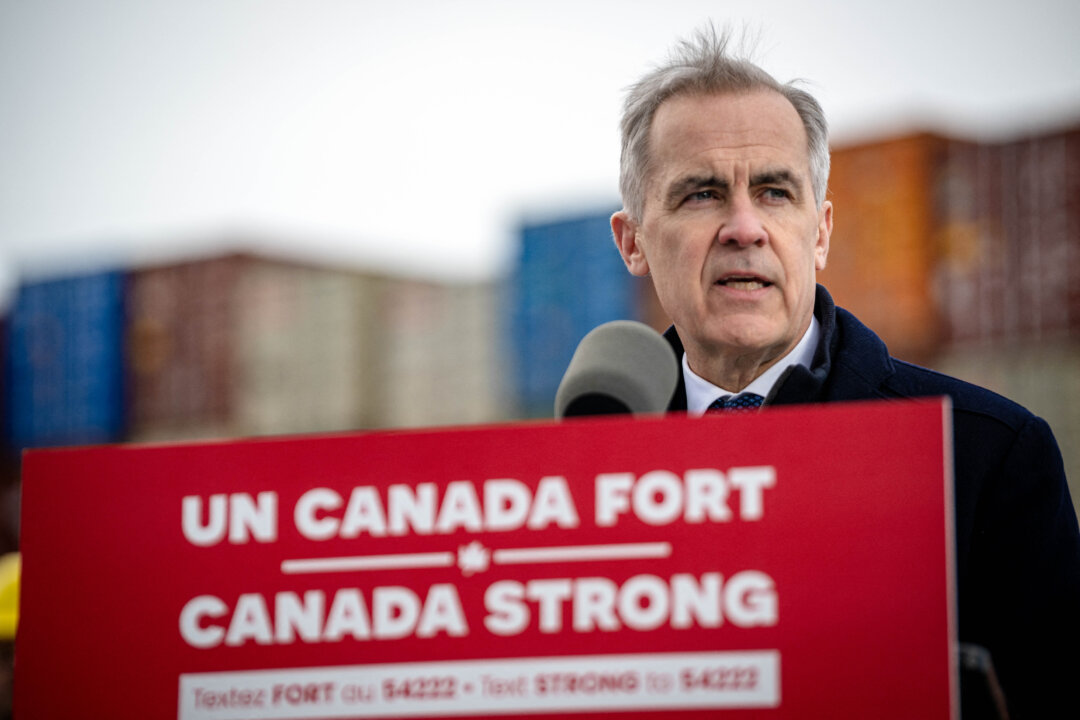Liberal Leader Mark Carney confirmed that U.S. President Donald Trump referenced Canada as the “51st state” during the two leaders’ phone call in March, but doubled down on his previous statement that Trump respected Canada’s sovereignty during the call.
An April 24 report from CBC News based on anonymous sources said that Trump had mentioned making Canada the 51st U.S. state during the March 28 phone call with the Canadian prime minister. In the days before the call took place, Carney said he wouldn’t hold discussions with Trump unless he respected Canada’s sovereignty.
When asked by reporters following the call if Trump had respected Canada’s sovereignty, Carney said: “The president respected Canada’s sovereignty today, both in his private and public comments.”
Later on April 24, Carney took questions from reporters during a campaign event and confirmed that Trump had mentioned Canada as the 51st state during the March 28 call.
“The president brings this up all the time. He brought it up yesterday. He brought it up before,” Carney said. “I said that he did,” he added, after being pressed.
Asked about his March 28 comment saying Trump had respected Canada’s sovereignty and whether that was truthful, Carney said the president “absolutely did.”
“The president has certain things in his mind that he reverts back to all the time, but [he] treated me as the prime minister, not as something else,” he said. “I’m not even going to say the word he used to use about my predecessor,” he added, in reference to Trump calling former Prime Minister Justin Trudeau “Governor” of the so-called 51st state.
Carney added that the phone conversation had led “directly to an agreement that as sovereign countries,” they would hold negotiations on the two countries’ trade and security relationship following the Canadian election on April 28.
“I think the president’s comments yesterday and before that, just underscore how important the choice that Canadians have on Monday,” Carney said.
Liberals have run their campaign with a strong focus on Trump, saying he poses a threat they are best equipped to handle.
Trump had remained mostly quiet on Canada in recent days but he was asked about the Canadian election and the tariff situation on April 23.
The president repeated his claim that the United States is subsidizing Canada to the tune of US$200 billion, but that if Canada were to become a U.S. state, “it works great.” He also surmised he could raise the 25 percent tariff on cars.
Trump also said he had spoken to Carney and that he is “very, very nice.”
“We had a couple of very nice conversations, very good, but I don’t think it’s appropriate for me to get involved in their election,” he added. A few days before the Canadian election was launched, Trump said he would prefer dealing with a Liberal prime minister over a Conservative leader, adding that Tory Leader Pierre Poilievre is “stupidly, no friend of mine”
Trump’s recent comments appear to be a rare reference to Canada as the 51st state since Carney became Liberal leader. When Justin Trudeau was prime minister, Trump repeatedly referred to him as “Governor Trudeau” and said Canada would be better off joining the United States, going as far as saying he would use “economic force” to make that happen.
The leaders of other parties reacted to Carney’s admission that Trump mentioned Canada as a 51st state during their call.
Poilievre, reacting to the CBC report before Carney had confirmed it, said he wasn’t on the call between Carney and Trump, “but what’s clear is we will stand up for our sovereignty.”
Bloc Québécois Leader Yves-François Blanchet said it appeared that the phone call was “not what has been described afterwards,” and that there was no respect for Canada’s sovereignty. “And if that is not true, then what else is not true?” he said.
NDP Leader Jagmeet Singh said the CBC report showed that Carney “hasn’t been telling the whole story” when it comes to his discussion with Trump, and that with upcoming negotiations between the two countries, this could potentially have “massive impacts on workers.”

